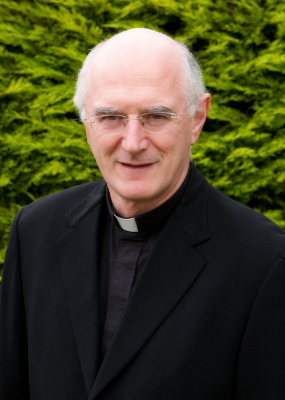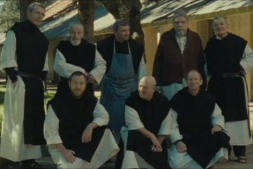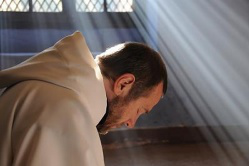Text: Archbishop of Dublin homily for Diplomatic Corps

Archbishop Dermot Farrell of Dublin - image CCO archive
Source: Catholic Communications Office
Archbishop Dermot Farrell, Archbishop of Dublin, gave this homily during Mass for the Diplomatic Corps on World Day of Peace, at the Church of the Holy Spirit, Ballyroan, Dublin.
This morning, on the Solemnity of Mary the Mother of God, we come together to pray for peace in our world. We gather against a backdrop of unrelenting war, a backdrop that is even darker this year because of its most recent outbreak - the conflict in the land where Jesus was born.
In other parts of the world, the many conflicts amount to what has been rightly described as a "piecemeal world war", which continues to spread more widely (see Pope Francis, 18 December 2022): the cynical Russian war against Ukraine, the dangerous local and regional conflicts in the Middle East, and Sub-Saharan Africa. Over and over again, the binding moral and international legal standards of the Geneva Conventions are clearly being violated by the indiscriminate use of force against civilians.
To consider these conflicts is to gaze "into a window of immeasurable darkness" (Rowan Williams, "Our Lady of Vladimir"). Yet Christian witness - especially the witness of the martyrs and the little ones - proclaims that "the light shines in the darkness and the darkness did not overcome it" (John 1:5). Or, as the Psalmist says to the Lord, "Even darkness is not dark for you…" (Psalm 138 [139]:12).
On today's feast the Church returns to the Gospel that was proclaimed on Christmas Day. The Church puts before us, again, the story of God's faithfulness and of the surprising ways of His saving presence among us. On this the Solemnity of Mary, our gaze naturally turns to the Mother of Jesus, who, according to Saint Luke, in the midst of all the unexpected things that were being done and said, "treasured all these things and pondered them in her heart" (Luke 2:51). At the beginning of the New Year, when we pray that God's promise of peace may be brought to birth in us, we do well to ask what we might need to ponder?
Perhaps, the first thing that we might put before our eyes is the brutality of war, and the suffering it unleashes on countless men, women and children. As we see on our screens, the raw violence of war causes immense misery for entire populations. While our senses may be numbed by the reports and images, we cannot ignore the reality of the people who are being killed and injured, or those who are suffering because it is not happening in our land.
The second thing that we might ponder is the displacement of millions of people on every continent because of conflict and war. As in the story of Christmas, the weak and vulnerable are still treated ruthlessly, and displaced in order to make room for those in power, or to assuage the fears of their neighbours. The misery of the displaced today is no different from that of Mary and Joseph who had to flee to Egypt with their child. In many situations of conflict, the loss is so great that no return to a former way of life is possible.
This displacement touches our lives in many ways: clearly its cost puts further pressure on State services which are already stretched. This brings in its wake a call for solidarity and generosity in ways that some countries - including our own - may not have confronted before. But there is another dimension: we are not detached observers of our world. These conflicts somehow involve us all. This was forcefully brought home to me upon reading the spiritual testament of Christian de Chergé, one of the Trappist monks killed during the conflict in Algeria in the 1990s. Two years before he and his six companions were killed, knowing the seriousness of their situation, he wrote, my life:
"has not the innocence of childhood. I have lived long enough to know that I am an accomplice in the evil which seems, alas, to prevail in the world, even in the evil which might blindly strike me down" (Bernardo Olivera, How Far to Follow? The Martyrs of Atlas (Collegeville: Liturgical Press, 2001], 127.).
De Chergé was a person of deep faith. That deep faith brought him to see that none us can avoid the darkness that can cover our earth. These conflicts are our conflicts too.
It is important that we see that everything is connected - be that the many wars raging throughout the world, the pandemic, and the climate crisis. The migration crises and the care of our Common Home are interrelated. The great human movements from the East and from the Southern Hemisphere toward the developed world are intimately related with the climate crisis, and its effect on our lives and wellbeing. It is vital that we recognise the gravity of the situation of this planet: our Common Home. To live well together in our Common Home we need an urgent dialogue. So how do we dialogue well?
In many of these conflicts, both religious belief and religious history are manipulated to support a particular agenda. The three Abrahamic faiths - Judaism, Christianity and Islam - hold that every person has been created in the image and likeness of God. We agree that the oneness of God is reflected in the unity of the human race (see Gen 1:27 and Qur'an, Sura 2:213). In other words, every person has a shared sacredness that reaches across our national borders.
To return to de Chergé - not only a monk, but an expert in the Islamic world and its culture - his spiritual testament would continue:
"I am aware of the caricature of Islam which a certain Islamism encourages. It is too easy to assuage one's conscience by identifying this religious way with the fundamentalist ideologies of its extremists. For me," he continues, "Algeria and Islam are something different - they are a body and a soul. I have said this often enough … in the sure knowledge [that I found] there so often that true strand of the gospel learned at my mother's knee…"
Christian de Chergé, was able to find the depth of his own faith, reflected in the lives of his Muslim neighbours. This brings us to the heart of the matter: we are all brothers and sisters, children of our one Father (see Matt 23:9).
Conflicts survive on the caricature of our opponents. We make our sisters and brothers - often people we've never encountered - different to ourselves. It is this tendency - and it is in us all - that we must work to address. Here is one of the deepest roots of the fear that can prove so corrosive in our societies, a fear we've seen erupt destructively in recent days. It is not enough to condemn incidents like yesterday's fire in Ringsend; we have a responsibility to understand and urgently address the roots of this unwarranted fear, and the harm it unleashes.
In the days since Christmas another tranche of State Papers has been declassified. There we can see the diplomatic community at work for peace. We see their hidden efforts and the values that motivate their work of fostering dialogue and cooperation between people of different political, social, ethnic, and religious backgrounds. Today, I acknowledge the presence of the Dean and members of the Diplomatic Corps. Without constant dialogue which is your work, no peaceful, equitable, or enduring ways forward will be found. This ongoing work of diplomacy is vital. Of course, the test is life rather than the precision of the definitions. While our words matter; what people do is what makes the difference. In international relations, it is not what leaders and States say, it is what they - and we as citizens - do.
On this Solemnity dedicated to Mary, we are again reminded that the birth of Christ is a light that shines in the darkness. Christmas is not a solution to the world's problems, but a promise. Peacebuilding can be learned and taught. In the words of Pope Saint Paul VI, as he inaugurated the World Day of Peace 1968, "the world must be educated to love peace, to build it up and defend it."
May Christ, the crucified Prince of Peace, be born us. May the Holy Spirit, who brought Christ to life in Mary, bring the Prince of Peace to life in us. May the Spirit strengthen us, and guide our feet on the way of peace (see Luke 1:79).


















